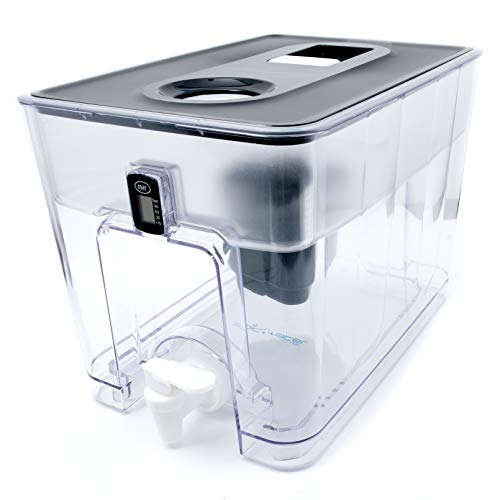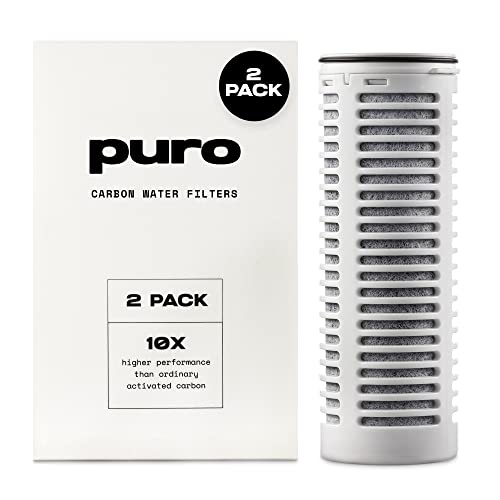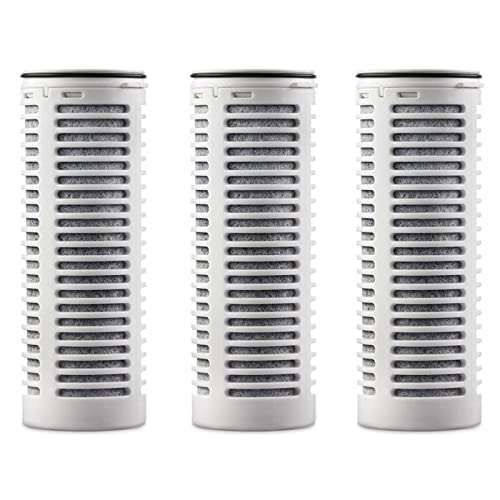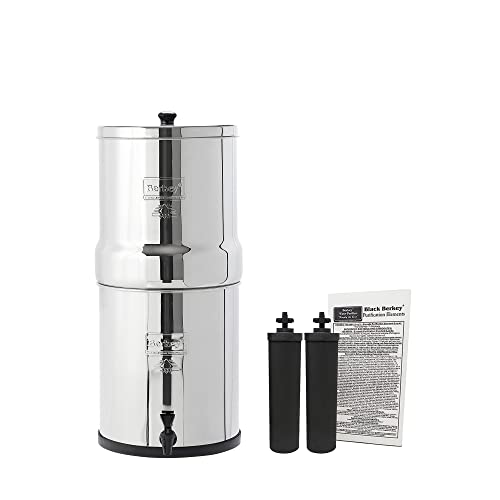The Ultimate Guide to Choosing the Best Water Filter for Microplastics: Protecting Yourself and the Environment
Michael Greene Dec 15, 2025 9:00 PM
In recent years, concerns about microplastics in drinking water have grown exponentially. Microplastics are tiny particles of plastic that can be found in our water supply, and they are harmful to our health and the environment. Fortunately, there are ways to filter out these particles before they reach our glass.
In this article, we will discuss the best water filter for microplastics and how to choose the right one for your needs.
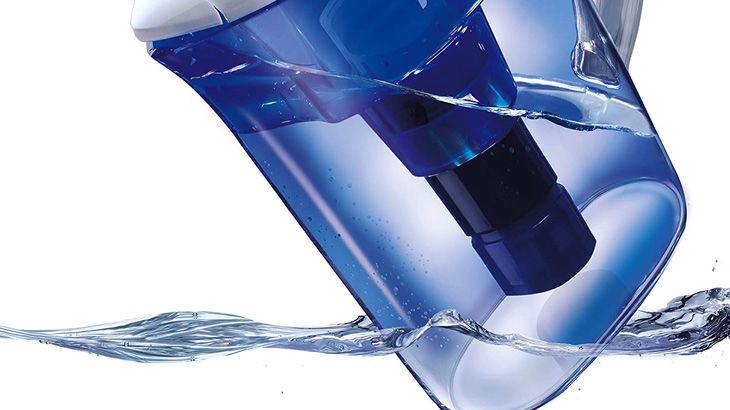
Overview
The Problem with Microplastics
Before we dive into the best water filter for microplastics, let's first understand why they are a problem. Microplastics are small particles of plastic that measure less than 5 millimeters in length. They come from a variety of sources, including cosmetics, clothing, and plastic waste. These particles are so small that they can easily pass through water treatment plants and end up in our drinking water.
The problem with microplastics is that they can have a negative impact on our health and the environment. Studies have found that microplastics can cause inflammation, damage to our organs, and even cancer. They can also harm marine life, as fish and other sea creatures mistake them for food.
Choosing the Best Water Filter for Microplastics
Now that we understand the problem with microplastics, let's discuss the best water filter for microplastics. When choosing a water filter, there are a few things to consider.
Filtration Type: There are several types of Water Filters available, including Activated Carbon, Reverse Osmosis, and Ceramic filters. Each type of filter has its own advantages and disadvantages. For microplastics, activated carbon filters are the most effective.
- Related: Best Activated Carbon Water Filter
Certification: Look for a water filter that has been certified by a reputable organization, such as NSF International or the Water Quality Association. This ensures that the filter has been tested and proven to remove microplastics.
- Related: Best NSF Certified Water Filters
Flow Rate: Consider the flow rate of the water filter. Some filters can be slow, which can be inconvenient if you need a lot of water quickly. Look for a filter that balances flow rate with filtration effectiveness.
Cost: Water filters can range in price from under $20 to over $1000. Determine your budget and look for a filter that fits within it. Keep in mind that a higher price tag does not always mean better filtration.
After considering the above factors, we have determined that the best water filter for microplastics is the Brita Longlast Filter.
Here's why:
-
Filtration Type: The Brita Longlast Filter uses activated carbon filtration, which is the most effective method for removing microplastics.
-
Certification: The Brita Longlast Filter has been certified by NSF International to remove 99% of Lead and other contaminants, including microplastics.
-
Flow Rate: The Brita Longlast Filter has a fast flow rate, which means you can get clean water quickly.
-
Cost: The Brita Longlast Filter is affordable, with a price tag of around $40.
In addition to the Brita Longlast Filter, there are other water filters that are effective at removing microplastics, including:
- GB SCORE9.5
GB SCORE is a ranking system developed by Guessbest.com. Guessbest.com has no relationship or impact from any manufacturers or sales agent websites. Learn more
- BrandBrita
- GB SCORE9.4
GB SCORE is a ranking system developed by Guessbest.com. Guessbest.com has no relationship or impact from any manufacturers or sales agent websites. Learn more
- BrandZeroWater
- GB SCORE9.3
GB SCORE is a ranking system developed by Guessbest.com. Guessbest.com has no relationship or impact from any manufacturers or sales agent websites. Learn more
- BrandAquasana
- GB SCORE9.2
GB SCORE is a ranking system developed by Guessbest.com. Guessbest.com has no relationship or impact from any manufacturers or sales agent websites. Learn more
- BrandPUR
- GB SCORE9.2
GB SCORE is a ranking system developed by Guessbest.com. Guessbest.com has no relationship or impact from any manufacturers or sales agent websites. Learn more
- BrandZeroWater
- GB SCORE9.1
GB SCORE is a ranking system developed by Guessbest.com. Guessbest.com has no relationship or impact from any manufacturers or sales agent websites. Learn more
- BrandEpic Water Filters
- GB SCORE9.1
GB SCORE is a ranking system developed by Guessbest.com. Guessbest.com has no relationship or impact from any manufacturers or sales agent websites. Learn more
- BrandEpic Water Filters
- GB SCORE9.1
GB SCORE is a ranking system developed by Guessbest.com. Guessbest.com has no relationship or impact from any manufacturers or sales agent websites. Learn more
- BrandAquagear
- Prime
- GB SCORE9.1
GB SCORE is a ranking system developed by Guessbest.com. Guessbest.com has no relationship or impact from any manufacturers or sales agent websites. Learn more
- BrandLifeStraw
- GB SCORE9.0
GB SCORE is a ranking system developed by Guessbest.com. Guessbest.com has no relationship or impact from any manufacturers or sales agent websites. Learn more
- BrandFLOWATER
- GB SCORE9.0
GB SCORE is a ranking system developed by Guessbest.com. Guessbest.com has no relationship or impact from any manufacturers or sales agent websites. Learn more
- BrandENHANCE YOUR LIVING
- GB SCORE9.0
GB SCORE is a ranking system developed by Guessbest.com. Guessbest.com has no relationship or impact from any manufacturers or sales agent websites. Learn more
- BrandENHANCE YOUR LIVING
- Prime
- GB SCORE9.0
GB SCORE is a ranking system developed by Guessbest.com. Guessbest.com has no relationship or impact from any manufacturers or sales agent websites. Learn more
- BrandLifeStraw
- GB SCORE8.9
GB SCORE is a ranking system developed by Guessbest.com. Guessbest.com has no relationship or impact from any manufacturers or sales agent websites. Learn more
- BrandFACHIOO
- Prime
Last update on 2025-12-15 / Affiliate links / Images, Product Titles, and Product Highlights from Amazon Product Advertising API
Can boiling water remove microplastics?
Boiling water will kill bacteria and viruses, but it will not remove microplastics. In fact, boiling water can actually cause microplastics to release more toxins into the water.
Can a water filter remove all microplastics?
No water filter can remove all microplastics from water. However, some filters, such as activated carbon filters, can remove a high percentage of microplastics.
How often should I change my water filter?
It is recommended to change your water filter every 40-120 gallons, depending on the type of filter and your water usage. Check the manufacturer's instructions for specific recommendations.
Are there any other ways to reduce microplastics in my drinking water?
Yes, there are a few other things you can do to reduce microplastics in your drinking water:
-
Use a reusable water bottle instead of single-use plastic bottles.
-
Reduce your overall use of plastic products.
-
Avoid using cosmetics and personal care products that contain microbeads.
Microplastics in drinking water are a growing concern, but choosing the right water filter can help keep you and the environment safe. When choosing a water filter, consider the filtration type, certification, flow rate, and cost.
The Brita Longlast Filter is our top choice for the best water filter for microplastics, but there are other effective options available as well.
Remember to also take steps to reduce your overall use of plastic products to help reduce the amount of microplastics in the environment. With the right water filter and a commitment to reducing plastic waste, we can all help protect ourselves and our planet.
Read More:







